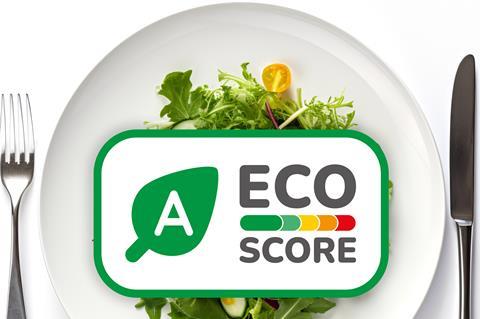Organic farming organisations have reached an agreement ending legal proceedings with Ademe, Yuka and its partners, according to Ifoam Organics Europe
Ifoam Organics Europe, the European federation of organic agriculture, has revealed that an agreement has been reached to bring legal proceedings against environmental impact indicator Eco-Score to a close.

“In January 2023, the European federation of organic agriculture (Ifoam Organics Europe) and its French members (Ifoam France) brought legal action before the Paris Judicial Court as well as an appeal before the INPI (National Institute of Intellectual Property) against the indicator of environmental impact ‘Eco-Score’,” Ifoam stated. “Following a mediation, first judicial and then conventional, the parties reached an agreement putting an end to these legal procedures.”
Ifoam listed certain provisions of the agreement, including that Ademe withdraw Eco Score for the food and agri-food sector at the INPI.
“Yuka and Eco2 Initiative renounce, also by 31 December 2024 at the latest, for their environmental impact indicator of food products, to designs and models containing the term “Eco-Score” registered at European level,” Ifoam revealed.
In addition, Ifoam Organics Europe, Ifoam France, Yuka, Eco2 Initiative, Open Food Facts and Ademe reportedly indicated agreement on “the importance of providing consumers with reliable and transparent information on the environmental impact of food products in order to help them make more responsible and sustainable choices”; the “essential role of organic agriculture and agroecology for the agricultural and food transition”, the “need for collaboration between all actors working for the transition of the food system”; and the “need to promote new eating habits”.
Under this last item, the parties agreed to work on moving towards agriculture that is more respectful of the environment, limits its impact on climate change and preserves biodiversity, as well as reducing pesticide use, reducing meat consumption and favouring meat from sustainable farms, reducing pressure on marine resources, respecting seasons for fruit and vegetables, reducing transportation and promoting local production, and reducing packaging waste.



